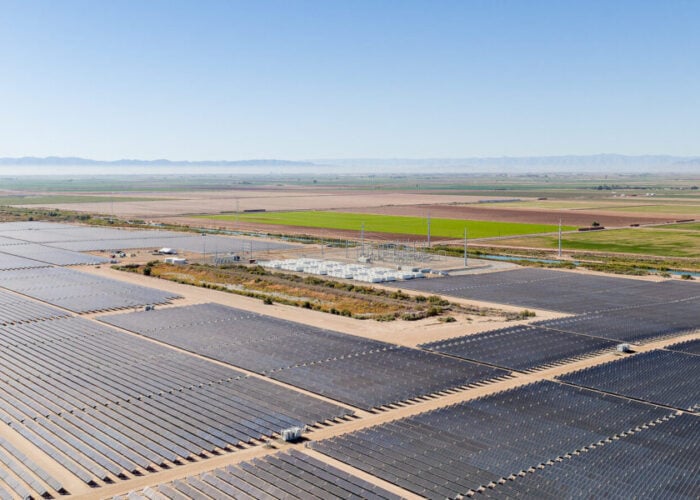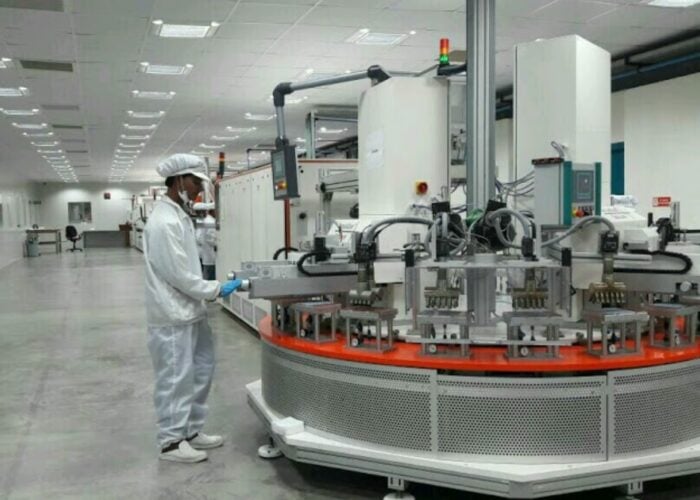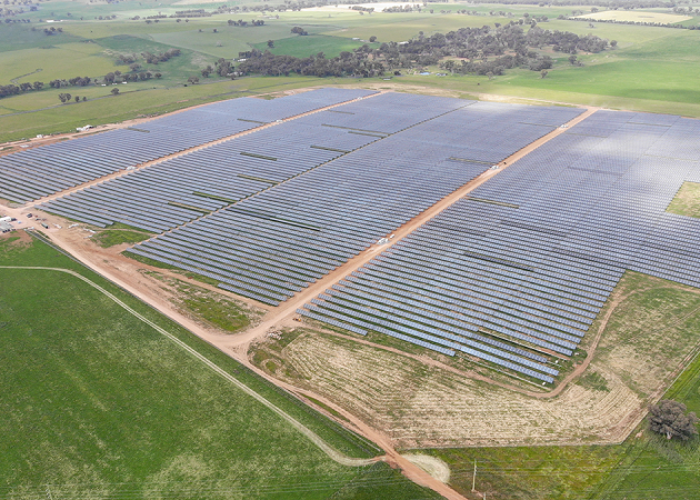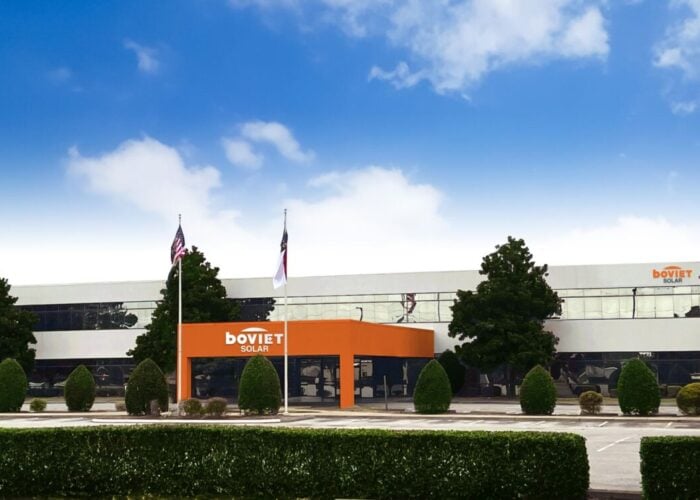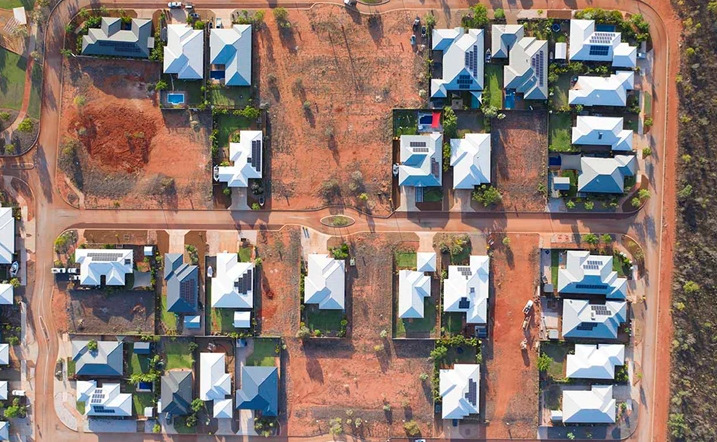
The Western Australian government has awarded AU$16 million (US$9.9 million) in funding to bolster clean energy projects, including solar PV and battery energy storage projects, two of which are being pursued by First Nations people.
The funding, confirmed yesterday (7 January), will be allocated to seven projects across the Australian state. These projects will support efforts to decarbonise with technologies including green hydrogen and electric vehicles (EVs), batteries, and solar PV.
Try Premium for just $1
- Full premium access for the first month at only $1
- Converts to an annual rate after 30 days unless cancelled
- Cancel anytime during the trial period
Premium Benefits
- Expert industry analysis and interviews
- Digital access to PV Tech Power journal
- Exclusive event discounts
Or get the full Premium subscription right away
Or continue reading this article for free
The funding is being granted through the State government’s Clean Energy Future Fund (CEFF), which aims to provide financial support to renewable energy projects aiding the energy transition. Since its inception, the CEFF has undertaken three rounds, with the aforementioned AU$16 million funding encompassed in the third round.
Of this AU$16 million funding, AU$5.5 million has been awarded to two First Nations people-owned projects. This includes a traditional owner-led solar PV and battery project on Banjima land in the Pilbara and a solar PV project on Jinparinya land near Port Hedland.
The Banjima Native Title Aboriginal Corporation has been awarded AU$2.5 million to install 103MW of solar PV and 51.5MWh of battery energy storage systems (BESS) in Central Pilbara. Meanwhile, Pilbara Solar has been granted AU$3 million to install 10MW of solar PV on land owned by the Jinparinya Aboriginal Community.
Aboriginal communities have been delving deeper into the solar PV market in recent years, owing to the technology’s potential to create microgrids in rural areas. Several landmark agreements have also been signed to achieve this.
In August 2024, Horizon Power, Western Australia’s regional energy provider, penned its first Indigenous Land Use Agreement (ILUA) with the Nyul Nyul people of Beagle Bay in Kimberley for a proposed solar PV development, the size of which has not been disclosed.
In October 2023, mining major Rio Tinto signed a memorandum of understanding with the Aboriginal energy partnership, Yindjibarndi Energy Corporation, to pursue the development of solar and wind projects in the Pilbara region of Western Australia.
Other recipients of the funding include BOC Limited, Tesla Geraldaton, Edenlife Communities, Electric Power Conversions Australia, and Pacific Energy, which received AU$3 million, AU$3.5 million, AU$432,750, AU$3 million, and AU$574,000, respectively.
The only other project to feature solar PV is Edenlife Communities’ initiative, which will see a 395kW solar PV system installed alongside a 300kW/663kWh BESS at a proposed retirement village featuring all-electric homes.
On the other hand, energy storage featured heavily in the list of successful recipients of the AU$16 million funding.
Most of the funding will be allocated to Tesla Geraldton, which plans to convert a 10MW diesel generator at Geraldton Airport to battery energy storage to provide grid services and EV charging.
Pacific Energy has also been awarded AU$574,000 to support the development of a 250kW/1MWh vanadium redox flow battery. Vanadium flow batteries are being tested within Western Australia to support the rollout of microgrids. As reported by our sister site, Energy-Storage.news, the Western Australia government backed a trial being conducted by Australian Vanadium and Horizon Power.
The trial includes using a 78kW/220kWh BESS supplied by VSUN Energy, a subsidiary of Australian Vanadium.
AU$3 million will be granted to BOC Limited to support a hydrogen project in Kwinana by installing a 1.25MW alkaline electrolyser to produce 500kg per day of green hydrogen, whilst Electric Power Conversions Australia has been provided AU$3 million to convert a 150-tonne mining haul truck from diesel to battery electric.
Solar PV and energy storage to support community energy resiliency in Victoria
In other news, AusNet, an electricity transmission network based in Victoria, has revealed an AU$2.4 million investment to support the use of solar PV and BESS units to bolster community energy resiliency in the state.
The funding is being allocated under AusNet’s Energy Resilience Community Fund Major Grants and will be granted to 13 recipients.
Five successful initiatives will use solar PV and BESS. These include Mansfield Shire Council, Nillumbik Shire Council, Cowwarr Football Netball Club, Seaspray Surf Lifesaving Club, and Millgrove Residents Action Group.
Mansfield Shire Council has been awarded AU$78,647 to install a generator, solar PV system, and BESS at the Community Hall and Woods Point Museum, enabling these buildings to act as emergency relief centres.
Nillumbik Shire Council received AU$265,000 to provide a new generator, battery, and switchboard at its Community Hub. It is also looking to expand its solar PV and provide plug-in points for mobile generators.
Cowwarr Football Netball Club received AU$160,000 for a solar PV upgrade, BESS, and three-phase inverter, enabling it to operate as an Emergency Relief Centre. The Seaspray Surf Lifesaving Club also received AU$302,385 to help fund the installation of a solar PV system and BESS.
The final recipient of the funding is situated in the Yarra Ranges Shire. The Millgrove Residents Action Group received AU$277,115 for solar PV, BESS and an inverter for community infrastructure at the Millwarra Primary School and Millwarra Community Hall.
AusNet’s executive general manager distribution, Andrew Linnie, said AusNet created the Energy Resilience Community Fund to fund projects to build long-term community energy resilience and support communities during the recovery phase of severe weather events.
“These major grant projects will build community energy resilience, delivering important and impactful change to communities across these regions, helping them to stay connected and safe during prolonged outages and emergencies,” Linnie said.

